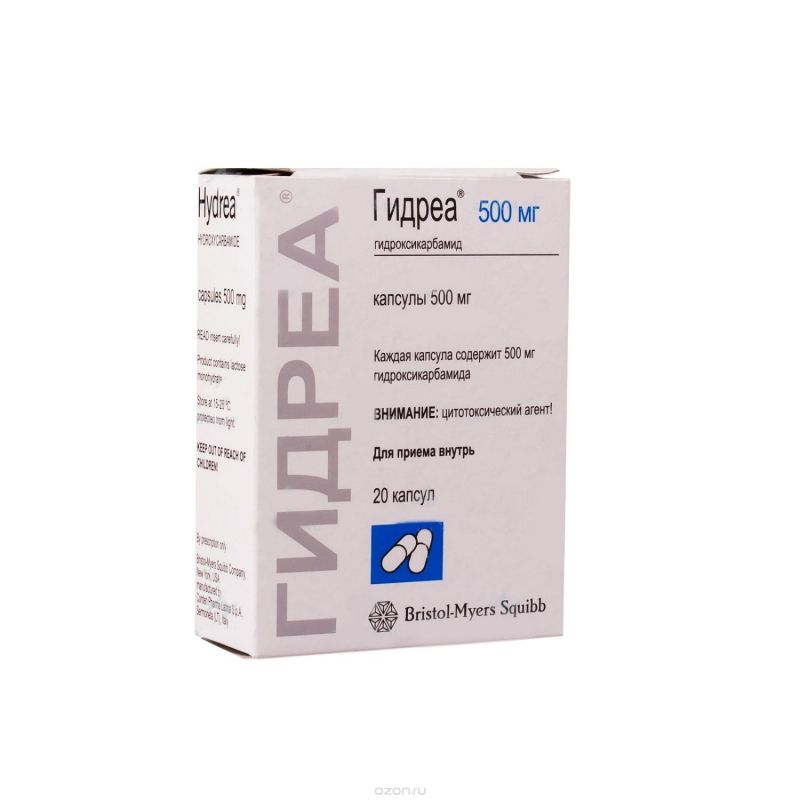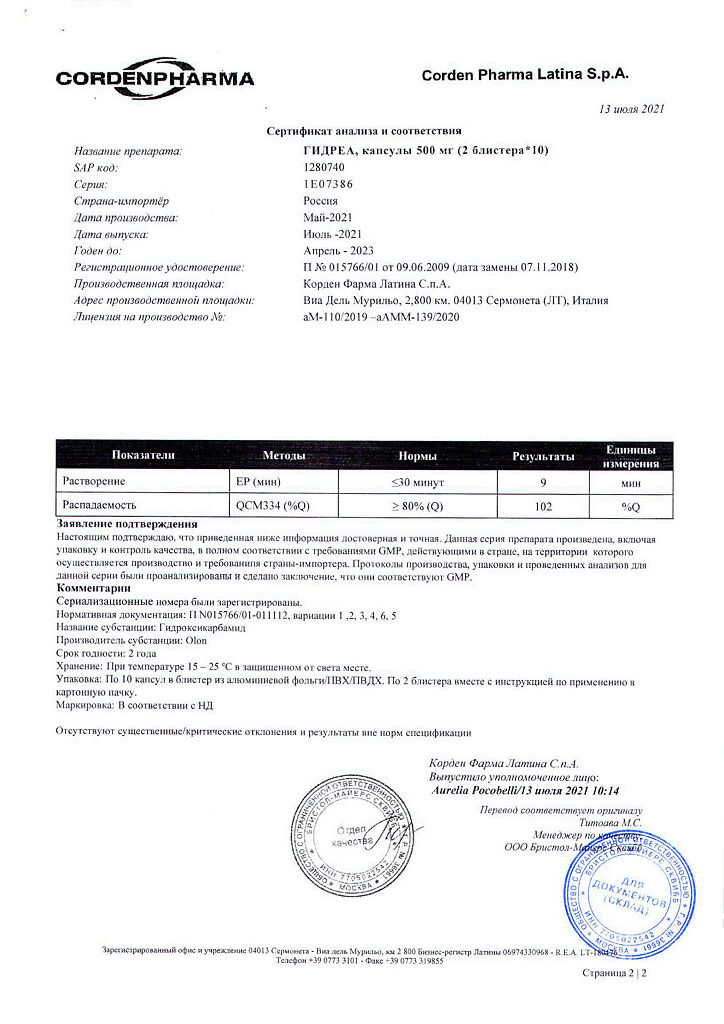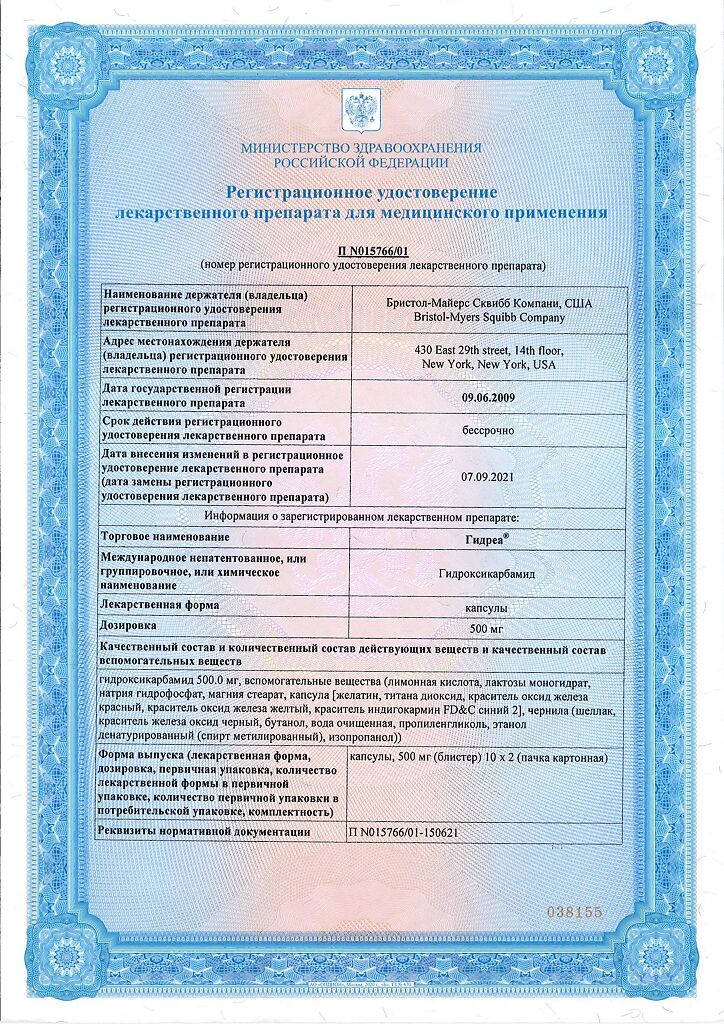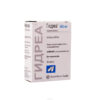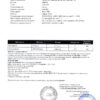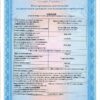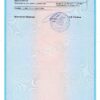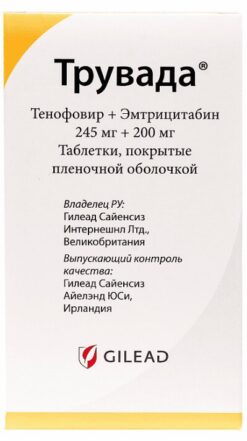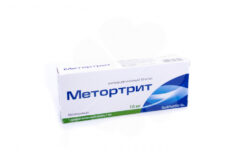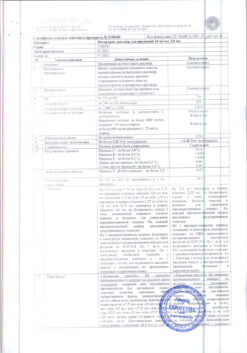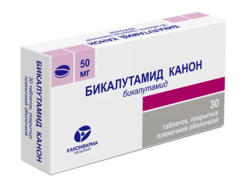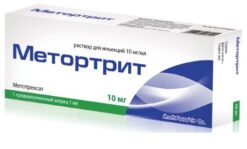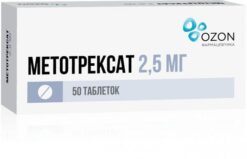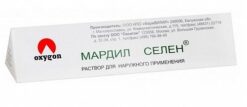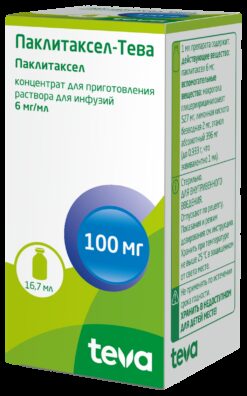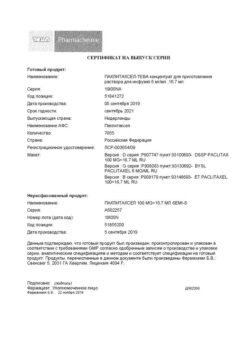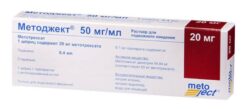No products in the cart.
Description
Pharmacodynamics
Antitumor agent. The presumed mechanism of action is inhibition of DNA synthesis. It has no effect on the synthesis of protein and RNA.
Pharmacokinetics
After oral administration it is well absorbed from the gastrointestinal tract. It penetrates through the HEB. It is metabolized in the liver. It is excreted mainly by the kidneys (80%). T1/2 is 3-4 hours.
Indications
Indications
Chronic myeloid leukemia;
melanoma;
ovarian cancer;
cervical cancer;
choriocarcinoma of the uterus;
head and neck tumors;
brain tumor;
erythremia.
Pharmacological effect
Pharmacological effect
Pharmacodynamics
Antitumor agent. The proposed mechanism of action is inhibition of DNA synthesis. Does not affect protein and RNA synthesis.
Pharmacokinetics
After oral administration, it is well absorbed from the gastrointestinal tract. Penetrates through the BBB. Metabolized in the liver. Excreted primarily by the kidneys (80%). T1/2 – 3-4 hours.
Special instructions
Special instructions
Caution must be exercised in patients with severe renal impairment.
It is not recommended to use hydroxyurea in patients with chickenpox (including recent or after contact with sick people), herpes zoster and other acute infectious diseases.
For elderly patients, adjustment of the dosage regimen may be required.
When using hydroxycarbamide in patients with gout or nephrolithiasis, the risk of hyperuricemia increases.
Combination with radiation therapy can lead to increased side effects that are associated with myelosuppression and damage to the gastric mucosa. Radiation-induced erythema may increase. Nausea, vomiting, anorexia caused by combined use with radiation therapy may disappear as a result of temporary withdrawal of hydroxycarbamide.
Before starting and during treatment, a complete blood picture should be determined, including bone marrow examination, as well as kidney and liver function. Repeat the blood test at least 1 time per week. If the number of leukocytes decreases to less than 2500/μl, and platelets less than 100,000/μl, treatment should be stopped until normal values of these indicators are restored. Changes in ESR are possible (usually increased).
If anemia develops, it should be treated without interrupting the course of hydroxycarbamide, using replacement transfusions of red blood cells.
Changes in biochemical parameters are possible: increased concentrations of urea, creatinine, uric acid in the blood, increased activity of liver transaminases.
It is not recommended to vaccinate patients and their families.
Active ingredient
Active ingredient
Hydroxyurea
Composition
Composition
1 capsule contains:
Active substances:
hydroxyurea 500 mg.
Pregnancy
Pregnancy
Hydroxycarbamide is contraindicated during pregnancy. If necessary, use during lactation should stop breastfeeding.
Women of childbearing potential receiving hydroxyurea therapy should use reliable methods of contraception.
Experimental studies have established the teratogenic and embryotoxic effects of hydroxycarbamide.
Contraindications
Contraindications
Leukopenia less than 2500/µl;
thrombocytopenia less than 100,000/µl;
severe anemia;
pregnancy;
hypersensitivity to hydroxyurea.
Side Effects
Side Effects
From the hematopoietic system: leukopenia, thrombocytopenia, anemia.
From the digestive system: stomatitis, anorexia, nausea, vomiting, diarrhea, constipation; rarely – liver dysfunction.
From the side of the central nervous system: feeling of fatigue, headache, drowsiness, dizziness, hallucinations, convulsions.
From the respiratory system: in some cases – diffuse pulmonary infiltrates, accompanied by fever and shortness of breath.
From the urinary system: difficulty urinating; rarely – renal dysfunction.
Dermatological reactions: alopecia, maculopapular rash, erythema.
Other: fever, chills.
Interaction
Interaction
Increased myelosuppression is possible in the case of previous therapy with cytotoxic drugs.
Overdose
Overdose
Treatment is symptomatic, because there is no specific antidote; not subject to dialysis.
Storage conditions
Storage conditions
Store in a place protected from light, at a temperature of 15–25 °C.
Shelf life
Shelf life
5 years.
Manufacturer
Manufacturer
Corden Pharma Latina S.p.A., Italy
Additional information
| Shelf life | 5 years. |
|---|---|
| Conditions of storage | Store in a dark place at 15-25 °C. |
| Manufacturer | Bristol-Myers Squibb, USA |
| Medication form | capsules |
| Brand | Bristol-Myers Squibb |
Related products
Buy Hydrea, 500 mg capsules, 20 pcs. with delivery to USA, UK, Europe and over 120 other countries.

